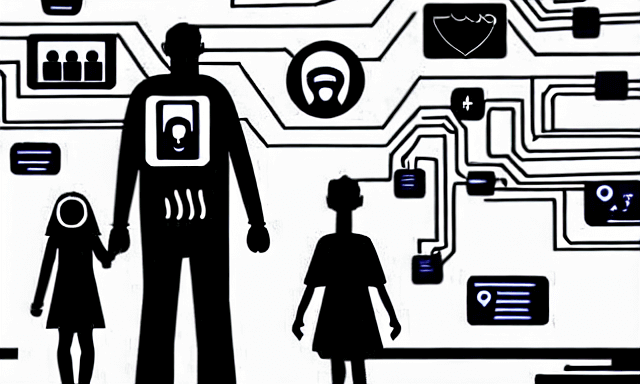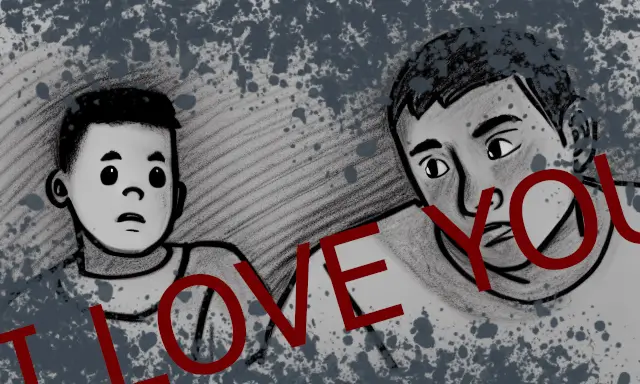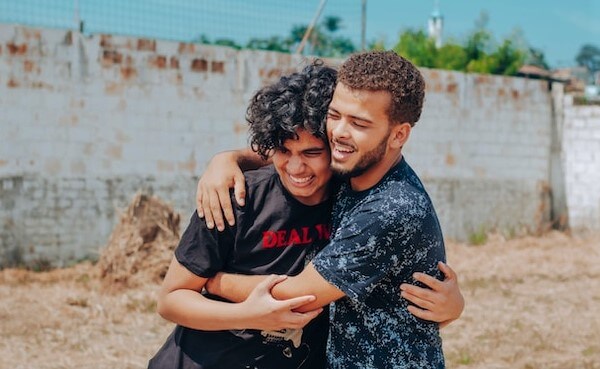What Are The Pros And Cons Of Teaching Discipline To Your Children?
I’m sure many of you are familiar with the concept of discipline…now, as a parent, have you already smashed your face against the wall of teaching discipline to your children?
Did you experienced first hand that things can can rapidly fumble away as you try to pass the torch of good habits on to your kids??…
In this article, we will try to discuss the pros of teaching discipline to your kids. but we will also point out some red lights to notice when doing it, to prevent a healthy practice from becoming counterproductive.
Overall, teaching discipline to children can have both positive and negative effects. On the positive side, discipline can help children learn self-control, develop a sense of responsibility and accountability, and feel safe and secure.
On the negative side, discipline can be overly punitive or harsh. It can become inconsistent or unpredictable, and used as a way to control or manipulate children. A child can therefore refuse discipline altogether as a reaction to a perceived freedom limitation.
To effectively discipline children and teach them how to make good choices, focus on teaching and guidance rather than punishment or control. For instance set clear boundaries and expectations, consistently enforcing consequences. But also take the time to listen to and understand children’s perspectives.
Well, let’s start with…
A Basic, Working Definition of “Teaching Discipline”
“Teaching discipline is the practice of showing and explaining someone self-control, good functional attitude toward authority, rules, assignations and standards.
But also the importance of systematically building one’s knowledge. This is the way to self-independence and solid decision-making skills. It’s an important part of life, as it can help us develop important capabilities like self-regulation and problem-solving.“
But, as with anything, there are important details that need to be taken into account :
On the plus side, discipline can teach kids how to manage their own behavior. With solid discipline skills they will make appropriate decisions when faced with some difficult choices.
It can also instill a sense of responsibility in children by giving them clear guidelines for what is acceptable vs. what is not.
It can show kids how staying more focused is a surefire path to reach what they desire…
But on the other hand, if discipline is taught in a too restrictive or rigid way, it can lead to feelings of frustration or resentment.
Unfortunately, It is no easy task to handle this issue properly….
| There are also concerns about how Discipline impacts children’s mental health, as an overly strict practice could lead to negative emotions such as guilt or shame. |
Thus, discipline, when used in a healthy way, seems to be a great way to encourage good behavior…
But special care is required not to use excessive force or restrictiveness when implementing it.
Let’s dive a bit deeper into those different aspects.
(..and by te way, do you often feel in a rush, like the day is never enough to fulfill all the tasks you intend to do? Well, why do not take the chance to learn from our tips for Time Management? Follow the link to find more!!)
The Importance Of Limits And Boundaries For kids and teenagers
Discipline is a great tool that can be used to help children and adults alike. It provides structure and helps to develop skills that will benefit them in the long run.
Discipline can also teach children respect for themselves, others, and authority figures. This will then lead to better social relationships and improved self-esteem as they get positive reinforcements for any correct behavior and consequently learn how to make good decisions.

Additionally, discipline helps children learn responsibility by teaching them the importance of following rules once accepted.
This will work wonders in their future since a more disciplined individual is more likely to improve his/her performance in school or work as he/she makes a habit of staying organized and completing tasks on time.
Furthermore, discipline promotes safety by ensuring kids learn the consequences of their actions. this will be of course valuable in their future too as they deal with laws and regulations in their adults-life.
And if we want to get philosophic a bit here, a reasonable result could be then less crime in society overall, which equates to a healthier and safer environment for everyone.
So, as we have learned so far, discipline is an important aspect of personality that should be constantly taught in the family as well as in school to ensure everyone has the best chance to enjoy an improved experience of life.

A healthy amount of discipline in the household can help children feel safe and secure. By providing clear rules and consequences, parents can create a sense of structure and predictability that can help children feel more secure and confident.
But…do the kids express the same appreciation and openness to the subject?? …Uhm…
The Fine Line Between Discipline and Control: Finding the Right Balance
The Struggles For Power Between Parents And Children
Power struggles between parents and children are a common and somehow natural part of the parent-child relationship.
As children grow and develop, they begin to assert their independence and seek to have more control over their own lives. At the same time, parents have the responsibility of guiding and protecting their children, and therefore may feel the need to exert their authority in order to do so. This can lead to tension and conflict, as both parties try to assert their own will and power.
Autonomy
A common source of power struggles between parents and children is the issue of autonomy. As children grow older, they may push back against their parents’ rules and expectations, seeking more freedom and independence. At the same time, parents may feel the need to maintain control in order to keep their children safe and ensure that they make responsible decisions. This can lead to conflict, as both parties struggle to find a balance between autonomy and oversight.
Authority
Another common source of power struggles is the issue of authority. Children may resist their parents’ authority, feeling that they are being treated unfairly or that their parents are being too controlling. On the other hand, parents may feel the need to assert their authority in order to set limits and establish boundaries for their children. This can lead to conflicts over issues such as curfew, homework, and household chores.

Poor communication
Power struggles between parents and children can also be fueled by misunderstandings or miscommunication.
Children may not always understand the reasoning behind their parents’ rules or expectations. They may feel that they are being treated unfairly. Parents, on the other hand, may not always take the time to explain their decisions or may not communicate clearly, leading to misunderstandings and conflicts.
Ultimately, the key to resolving power struggles between parents and children is finding a way to balance the needs and desires of both parties. This may involve finding common ground and compromising on certain issues…
Or finding ways to give children more autonomy while still providing guidance and support. It may also involve finding ways to communicate more effectively and listen to each other’s perspectives.
Working as a team and finding ways to resolve conflicts, parents and children can strengthen their relationship and build trust and respect.
Unexpected Reactions And Behaviors in Children, Teenagers and Adholescents
You know, we adults tend often to forget that discipline is not a native personality trait of the human being. This means that nobody comes on this earth with a fully-formed and trained discipline muscle.
It is something that any child develops using the results and consequences received from different behaviors.
I say this because the reaction of a child coul surprise us…
Our effort of teaching him discipline might sometimes go south! We could get an aggressive response, the child could stop altogether participating in any activity or even develop feelings of resentment towards parents or authority figures.

(…and talking about discipline, are you a financially disciplined adult with your money? Find out a different take and intersting ideas about saving money that can be extremely useful for the future of your kids too…)
The Role of Positive Reinforcement in Teaching Discipline
Many children respond much better to positive reinforcement than punishment.
Traditional forms of consequences are reduced time-outs or taking away privileges for instance.
Many kids would respond aggressively to anything they perceive as a restriction of their freedom.
Therefore, one size doesn’t fit all…It’s important to take into account the individual characteristics of each child and try to understand what forms of discipline is appropriate for the situation.
| One size doesn’t fit all… |
It is our duty as parents to stay alert and avoid discipline becoming overly restrictive and limiting excessively a child’s freedom.
Their inner creativity shoud remain intact.

In addition, the habit of emphasizing too much on punishment from the parent’s side could lead us to the habit of minimizing, and losing empathy for the child’s feelings.
(Yeah, even everyday life can become creepy sometimes…pay attention… 😄😄😄)
The Connection Between Discipline and Love (From A Parent’s Perspective)
Teaching discipline to your children has not to be based on punishments.
It should instead focus on developing positive behaviors through rewards and praise.
So we build the best conditions to discuss together the issues provoked by bad behaviors.
| I hear you, I know myself that this is better said than done… I am only inviting you to reflect: we are all human beings here (children or grown children as we go along). And the way we all function is by building our specific pair of lenses to see the world and life itself. We accomplish this by recording and summarizing a giant database of informations coming from our personal experiences. |
It is critical therefore to do our best to surround our kids with the healthiest environment possible. This way we help them to develop a positive functional system to store and reuse those informations.
Check Out Your Tone!
So we will avoid becoming overly harsh or even abusive. We should never tolerate this type of behavior from ourselves as it can have lasting psychological effects on a child.
They aren´t yet prepared to discern different circumstances, and thus this could bring consequences (such as anxiety or depression later in life).
Our mission as parents is to learn as we grow together with our kids. Try to assist them to learn appropriate forms of discipline while also showing love and support.
Foster healthy relationships and avoid misunderstandings.

But be consistent with consequences as well as with praise and rewards :
With a lack of rules and consequences, children will become confused or learn to always find escapes.
Excuses or other legitimations will become natural then, since they experiment in the family that rules are worthless.
Yes, I am firmly convinced that we will all give our very best.
Read more : The first step in time management
Conclusion
In conclusion, while teaching discipline to your children is an important part of parenting, it’s important to remember its potential downsides as well.
In this article we discussed how to take into account the individual needs of each child.
As a parent, it´s our duty to use appropriate forms of discipline according to the different situations.
A parent will inevitably encounter different issues in his quest to provide solid values to his kids….
But we can reasonably ensure that our children receive the best care possible without sacrificing their freedom or emotional well-being.
If we accept to acknowledge and learn from the mistakes we will undoubtedly commit along the way.
We can reduce the distance from our kids’ world to a minimum, stay younger ourselves and enjoy the best relationship possible with our children
Actually there is whole lot to learn from them…
…well, this is at least my experience of years of ups and downs, and more yet to come….
What is Yours? Tell me everything in the comments !







